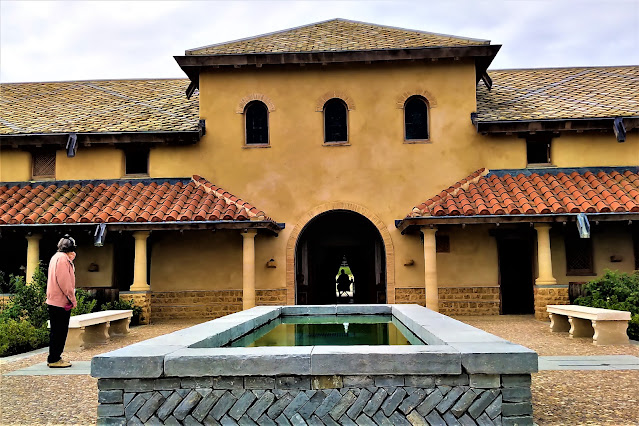Senhouse Roman Museum, Maryport

Hadrian’s Wall and Cumbrian Coast fortifications
Tonight, I am posting information on the Roman military fort known as Alauna at modern-day Maryport, on England’s north Cumbrian coastline.
The image above shows the hard line of Hadrian’s Wall, running east-west. The Wall’s south-western flank was protected by a fortified line along the coast terminating at Alauna. This line faces across the Solway Firth (estuary) across which is Scotland but for most of the Roman period was hostile territory controlled by the Picts.
Alauna was one of the largest Roman frontier forts and may have served as a supply base for the western section of the Wall. Alauna was constructed in the AD120s, probably by the 2nd and 20th legions and remained in operation until the Roman withdrawal in AD 410.
Archaeologists have recovered 23 altars whose inscriptions provide a very useful source of information on the occupying forces which were posted from around the Empire, viz:
- Second Augusta
- Twentieth Valeria Victrix
- Twentieth Legion Gordiana
- Second Cohort of Pannonians ( central Europe)
- First Cohort of Spaniards
- First Cohort of Baetasians ( Germany).
- First Cohort of Dalmatians ( Adriatic)
All the inscriptions are in a form of Latin, except one which is written in Greek.
Images of some of the various altars and inscriptions are provided below.
The video clip below was taken from the vantage point of a replica Roman observation tower and shows the location of the fort relative to the coast and Scotland opposite together with the greenfield site of Alauna which today has the appearance of parkland.
There is a small visitor centre close to the site which houses the altars and other finds. This known as the Senhouse Roman Museum.
Video clip of Alauna Roman Military Site, Maryport

To Jupiter, Best and Greatest-the First Cohort of Baetasians, Roman Citizens, commanded byTitus Attius Tutor, prefect.

Roman altars at Senhouse Roman Museum.

Roman altars at Senhouse Museum, Maryport

To Jupiter, Best and Greatest, Lucius Cammius Maximus, prefect of the First Cohort of Spaniards

First Cohort of Spaniards-Indutius made this

Comments
Post a Comment